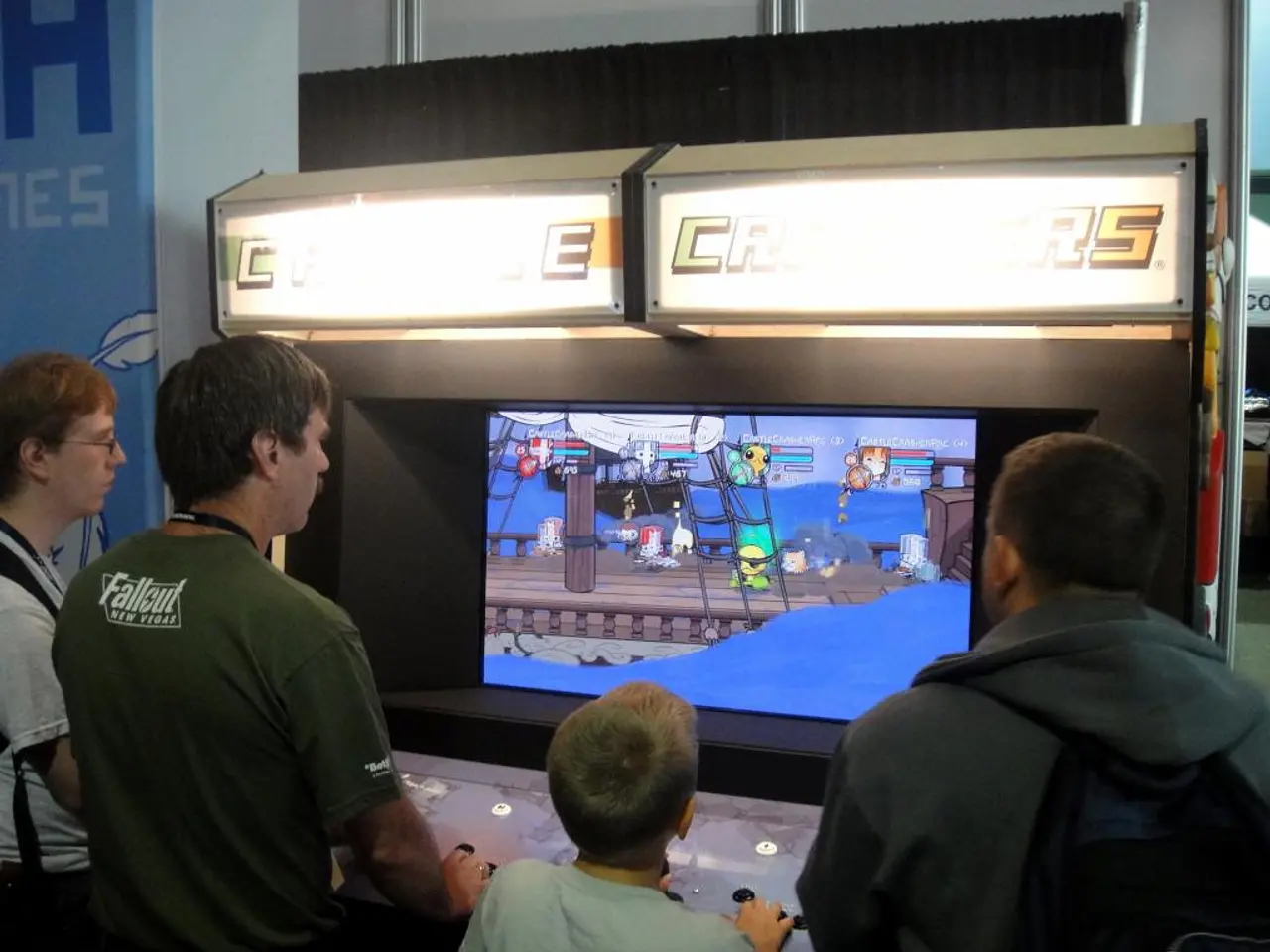Acceptable AI options for video game development
Ethical AI in Video Game Development: A Balancing Act
In the ever-evolving world of video game development, Artificial Intelligence (AI) is increasingly being utilised to streamline workflows and enhance player experiences. However, the ethical implications of this technology are subject to ongoing debate.
AI is being employed in various aspects of game creation, from visual assets and music, to marketing materials and even whole games. Yet, its use is generating controversy due to concerns about copyright, job losses, and potential plagiarism.
Brian Fargo, the renowned game developer and founder of Xbox studio InXile Entertainment, recently addressed these issues in an interview with YouTuber MrMattyPlays. Fargo, known for his work on classic role-playing games like The Bard's Tale and Wasteland, as well as the production of Fallout and the upcoming first-person steampunk RPG Clockwork Revolution, expressed reservations about the unregulated use of AI in video game design.
AI is not seen as a replacement for human creativity by Fargo. Instead, he suggests it could be used for mundane tasks such as querying data, cleaning up data, and checking punctuation. Moreover, he advocates for the use of AI in creative assistance, provided it is done ethically with consent. For instance, AI could generate dialogue, visual assets, or last-minute voice lines, but only with the agreement of the actors involved and fair compensation.
Fargo also compared AI imagery to museums or Deviant Art as a source of inspiration, not for direct use. He emphasised the importance of human authorship and copyright compliance, stressing that significant human input and editorial control must accompany AI-generated content to meet legal standards and protect intellectual property rights.
On the topic of job displacement, Fargo acknowledged the potential impact of AI on the workforce. He urged balancing automation with maintaining creative employment opportunities. Fargo also suggested that smaller developers may use AI with less regard for public opinion, potentially impacting established players in the industry.
Microsoft, which owns InXile, is investing $80bn in the area of generative AI, simultaneously cutting jobs. This investment could have a significant impact on established players in the video game industry due to the actions of smaller developers.
In the ethical uses of AI in video game development, primary focus is on enhancing player experience, creativity, and immersion without exploiting or misleading users. Potential applications include adaptive gameplay and difficulty, improved NPC behavior, personalized content and narrative, creative assistance, in-house AI model training, and transparency and accountability.
However, important ethical considerations include avoiding exploitation, data security and privacy, human authorship and copyright compliance, job displacement concerns, and industry self-regulation and frameworks. Balancing these considerations is crucial to ensure fair and trustworthy AI implementation in video game development.
In conclusion, ethical AI in game development enhances creativity, player engagement, and productivity while respecting player rights, transparency, legal frameworks, and the professional game development workforce. The debate over the ethical use of AI in video game design continues, with no clear consensus. Yet, as the industry continues to evolve, it is essential to address these ethical concerns to maintain trust and foster a creative and innovative environment.
[1] https://www.gamasutra.com/blogs/TheArtOfGameDev/2021_02_23_The_Ethics_of_AI_in_Game_Development_Part_1 [2] https://www.gamasutra.com/blogs/TheArtOfGameDev/2021_03_02_The_Ethics_of_AI_in_Game_Development_Part_2 [3] https://www.gamasutra.com/blogs/TheArtOfGameDev/2021_03_09_The_Ethics_of_AI_in_Game_Development_Part_3 [4] https://www.gamasutra.com/blogs/TheArtOfGameDev/2021_03_16_The_Ethics_of_AI_in_Game_Development_Part_4 [5] https://www.gamasutra.com/blogs/TheArtOfGameDev/2021_03_23_The_Ethics_of_AI_in_Game_Development_Part_5
- The creative design process in video game development may incorporate innovative technology like Artificial Intelligence (AI) to generate visual assets, such as 3D models or layouts, taking inspiration from poster art, museums, or Deviant Art.
- Brian Fargo, the founder of Xbox studio InXile Entertainment, believes AI can assist in mundane tasks like data querying or cleaning, but should not replace human creativity in the UI or logo design of games.
- He suggested that AI could be utilized ethically for creative assistance, like generating dialogue or visual assets, provided there is consent from all actors and fair compensation is offered.
- Fargo believes that AI-generated content should adhere to legal standards and intellectual property rights, with human input and editorial control as key components.
- As AI continues to be adopted in the video game industry, ethical concerns remain, including job displacement, data security, and privacy, as well as maintaining transparency and industry self-regulation.
- The balance between using AI to promote creativity, improve player experience, and streamline workflows, while addressing ethical concerns and preserving the role of human authorship and the workforce, remains a critical debated topic in the field of video game development.




